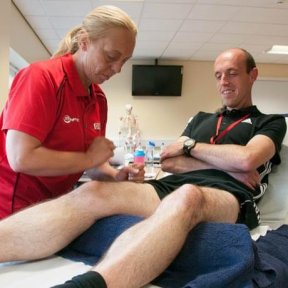The department runs an extensive coaching programme enabling students to gain extra coaching qualifications in many sports including football, basketball, hockey, dodgeball and tchouckball.
You will also benefit from inspiring talks, workshops and masterclasses from guest speakers.
We have our own sports academies which specialise in basketball, cricket, esports, football, netball, refereeing and rugby, plus an individual athlete academy.
We have a purpose made gym, sports hall, 4G sports pitch, sports science and physiology lab equipped with the latest performance analysis software and a specialist sport massage suite. As well as providing well-equipped classrooms with industry-standard equipment.
The Sport department is based in our Honeywell Sports campus. Visit our Campus page to explore our state-of-the-art facilities and take a 360 tour.
You can study Sport in Barnsley up to Level 6 by progressing to a degree at Barnsley College University Centre which means that there is something on offer for those who are just starting their career as well as those who are looking to specialise.
Careers guidance: see what careers are available in the Sport sector. Use our online careers tool, Career Coach, to find out what your next steps could be.
Enrichment (extracurricular activities)
Enterprise – support to set up a business
Free or concessionary travel to make it easy to get to College
Tutorial Support and Additional Learning Support (ALS)
Enrichment (extracurricular activities)
Free or concessionary travel to get to College.
Enterprise – support to set up a business
All students will have the opportunity to join the Barnsley Sports Academy workforce to gain work experience and develop their employability skills in a variety of roles, from Sports Therapist to Shoutcaster and Personal Trainer to Sports Journalist.

Studying Sport at Barnsley College will enable you to develop skills for a range of careers such as: Performance Analyst, Fitness Instructor, Health and Wellness Advisor, Sports Coach, Personal Trainer, Leisure Centre Manager.
See what careers are available in the Sport sector.